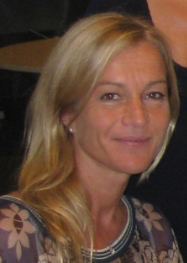
Immunisation is one of the most successful and cost-effective preventative health measures and a proven tool for the elimination or control of certain life-threatening infectious diseases. It prevents 2 to 3 million deaths worldwide annually, and according to the World Health Organization (WHO), it could prevent an additional 1.5 million deaths, especially among infants and young children. In order to raise awareness of the benefits of immunisation and promote the use of vaccines, the WHO established World Immunisation Week, which is celebrated in the last week of April. IMI’s ADVANCE project, which finished recently, focused on the challenge of addressing public concerns about vaccine safety. It did this by developing a pan-European infrastructure prototype that allows scientific studies to rapidly determine the benefits and risks associated with vaccination programmes and specific vaccines. This framework will enable authorities to make rapid decisions about vaccines already on the market and assess the need to revise vaccination programmes already in place.
‘We have been very successful: we have been using electronic health databases on a source population of around 60 million persons in Europe to look at the coverage, effectiveness and safety of vaccines. Therefore, we have created readiness, both in terms of data, people, and methods, to be able to generate data quickly and robustly,’ explains ADVANCE project coordinator Professor Miriam Sturkenboom from the Julius Global Health group of the University Medical Center Utrecht.
ADVANCE gathered 47 partners across 19 European countries: the vaccine developing industry, public health and regulatory organisations including the European Centre for Disease Prevention and Control (ECDC), the European Medicines Agency (EMA), national public health and regulatory bodies, and academic experts. At the end of the project, the consortium delivered a blueprint of an efficient and sustainable vaccination benefit-risk assessment system that is implementable and acceptable to all stakeholders.
‘Each nation has their own ways of monitoring vaccines, but we have created a system that works on a European level. It means that the different dosing schedules, different vaccines that are utilised in different countries can be compared with each other,’ says Miriam Sturkenboom, adding that before ADVANCE, Europe had been lagging behind in the sense of the unified monitoring of the benefits and safety of vaccines as compared to the USA.
Within the project, an interactive dashboard was developed, as a potential methodology for near real-time monitoring of vaccine coverage and their pre-specified health benefits and risks. The dashboard allows users to select age groups, countries and time periods, and calculate the health benefits and risks to provide visualised proof of real world vaccine effectiveness and safety.
VAC4EU - a new initiative to ensure ADVANCE's legacy
To capitalise on the achievements of ADVANCE, a not-for-profit international organisation called VAC4EU (Vaccine monitoring Collaboration for Europe) has been created. Based in Belgium, VAC4EU aims to facilitate an open and sustainable European system for actively monitoring vaccine coverage, benefits and risks.
‘The goal for VAC4EU is to implement all the processes described in the blueprint that was developed by ADVANCE and to make it real life. In this way, we will have the continuance, and the means to generate evidence that the public is asking for,’ says Prof. Sturkenboom, adding that VAC4EU will also need EU political support to be fully operational. ‘I think that is time for Europe to have a serious vaccine monitoring system, able to respond rapidly to current problems, like public lack of confidence in immunisation.’
According to the European Commission’s 2018 report ’State of the Vaccine Confidence in the EU’, in 2016 Europe had lower confidence in the safety of vaccines than other world regions, with vaccine refusal increasing in many EU member states, thus undermining the medical achievements of previous decades. Diseases like measles, that had almost been eradicated, became a problem in Europe: the report reveals that between 2000 and 2017, routine immunisation coverage of the first dose of the anti-measles vaccine fell in nine EU member states. Preliminary global data show that the number of measles cases rose by 300 % in the first three months of 2019, compared to 2018, when Europe had the worst measles outbreak this decade. Last year, there were 82 596 measles cases across 47 countries in Europe, resulting in 72 deaths. WHO data shows an overall improvement in immunisation coverage, but still, the estimated intake of the second dose of measles vaccine was below 95 % in 34 countries, showing a lack of public confidence in the vaccine’s safety and efficiency.
‘People don’t want just to hear vaccines are safe, they want to know what are the risks. They request information on the basis of which they will make their own decisions whether vaccination is worth the risk, and the public health system should provide this,’ explains Prof. Sturkenboom. VAC4EU should in the near future provide much needed real-time information about the risks and benefits of the vaccine, with Prof. Sturkenboom adding that all original stakeholders in the ADVANCE project are willing to continue their work in VAC4EU. ‘We don’t want to let ADVANCE be just a successful project that has ended; we all see that it needs to continue forward, in a different shape, but there is a need for support on the European level.’
About World Immunisation Week
The WHO marks World Immunisation Week annually during the last week of April; in 2019, it runs from 24-30 April. Information on activities in Europe can be found on the websites of WHO Europe and the ECDC. To mark World Immunisation Week 2019, IMI is publishing a short series of articles on the results and activities of our vaccine projects.
- ZAPI: Finding new ways to fight new zoonoses
- FLUCOP: a toolbox for the evaluation of new flu vaccines
